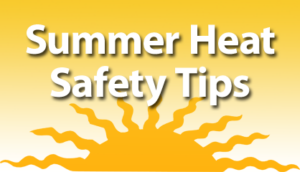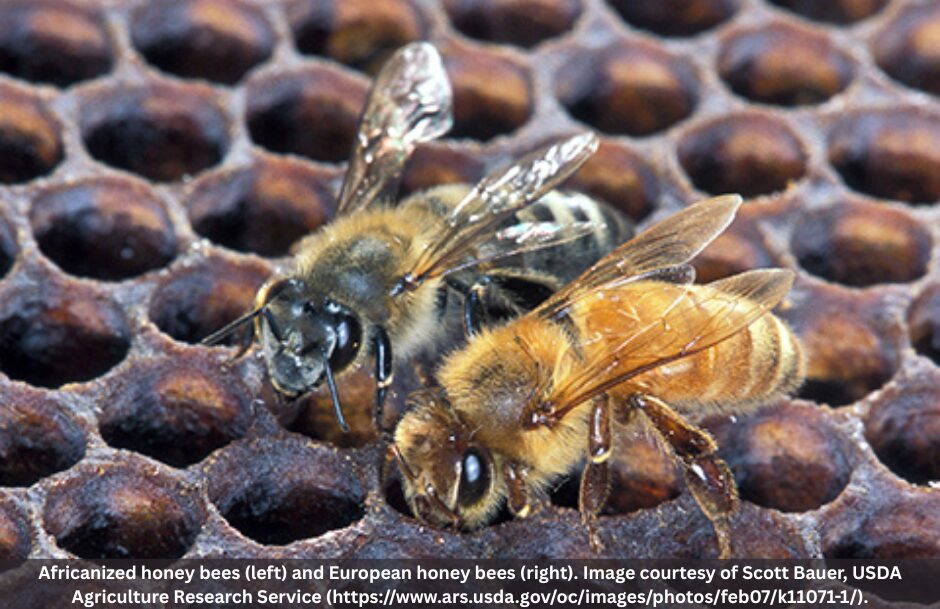
It seems like the summer heat comes in earlier each year and temperatures are already climbing into the 90s.
High temperatures kill hundreds of people every year. Heat-related deaths and illness are preventable, yet more than 700 people die from extreme heat every year in the United States.
Take measures to stay cool, remain hydrated, and keep informed. Getting too hot can make you sick. You can become ill from the heat if your body can’t compensate for it and properly cool you off. The main things affecting your body’s ability to cool itself during extremely hot weather are:
- High humidity. When the humidity is high, sweat won’t evaporate as quickly. This keeps your body from releasing heat as fast as it may need to.
- Personal factors. Age, obesity, fever, dehydration, heart disease, mental illness, poor circulation, sunburn, and prescription drug and alcohol use all can play a role in whether a person can cool off enough in very hot weather.
Even young and healthy people can get sick from the heat if they participate in strenuous physical activities during hot weather:
- Limit your outdoor activity, especially midday when the sun is hottest.
- Wear and reapply sunscreen as indicated on the package.
- Pace your activity. Start activities slow and pick up the pace gradually.
- Drink more water than usual and don’t wait until you’re thirsty to drink more. Muscle cramping may be an early sign of heat-related illness.
- Wear loose, lightweight, light-colored clothing.
Another issue we face are parents neglecting to check the backseat of their vehicle for children upon exiting.
When a child is left in a hot vehicle, that child’s temperature can rise quickly and they could die within minutes.
According to the statistics from the Kids and Cars group, 38 children on average have died from being stuck in hot vehicles every year since 1991. It is hard to recognize if someone is still in the back seat when it’s a child sleeping in a big car seat under the blanket. U.S. child safety and accident prevention organization, 39 children die of heatstroke in a locked car each year.
Back in June 2017, the U.S government was working on a bill called HOT CARS (Helping Overcome Trauma for Children Alone in Rear Seats) Act, that would require all new vehicles be equipped with a sensor and alert system to remind drivers to check the back seats, but it has not yet passed.
According to a press release sent out by Hyundai on May 29th, they have succeeded in commercializing the Rear Occupant Alert System, and other automakers in the U.S have also decided to implement the system and make it mandatory.
And let’s not forget about our four legged friends as they are just as important and should heed similar warnings.
Here are a few tips the ASPCA recommend:
- Visit the vet for a spring or early-summer checkup.
- Give your pets plenty of fresh, clean water when it’s hot or humid outdoors.
- Know the symptoms of overheating in pets, which include excessive panting or difficulty breathing, increased heart and respiratory rate, drooling, mild weakness, stupor or even collapse. Symptoms can also include seizures, bloody diarrhea and vomit along with an elevated body temperature of over 104 degrees.
online pharmacy buy symbicort inhaler online with best prices today in the USA
- Just as you wouldn’t your small children, never leave your animals alone in a parked vehicle.
- Do not leave pets unsupervised around a pool.
- Remember that some foods and drinks commonly found at barbeques can be poisonous to pets. Keep alcoholic beverages away from pets, as they can cause intoxication, depression and comas. Similarly, remember that the snacks we enjoy should not be a treat for your pet.
Summer is a great time to vacation and spend time with those that we love. Just remember to play it COOL and STAY SAFE!



